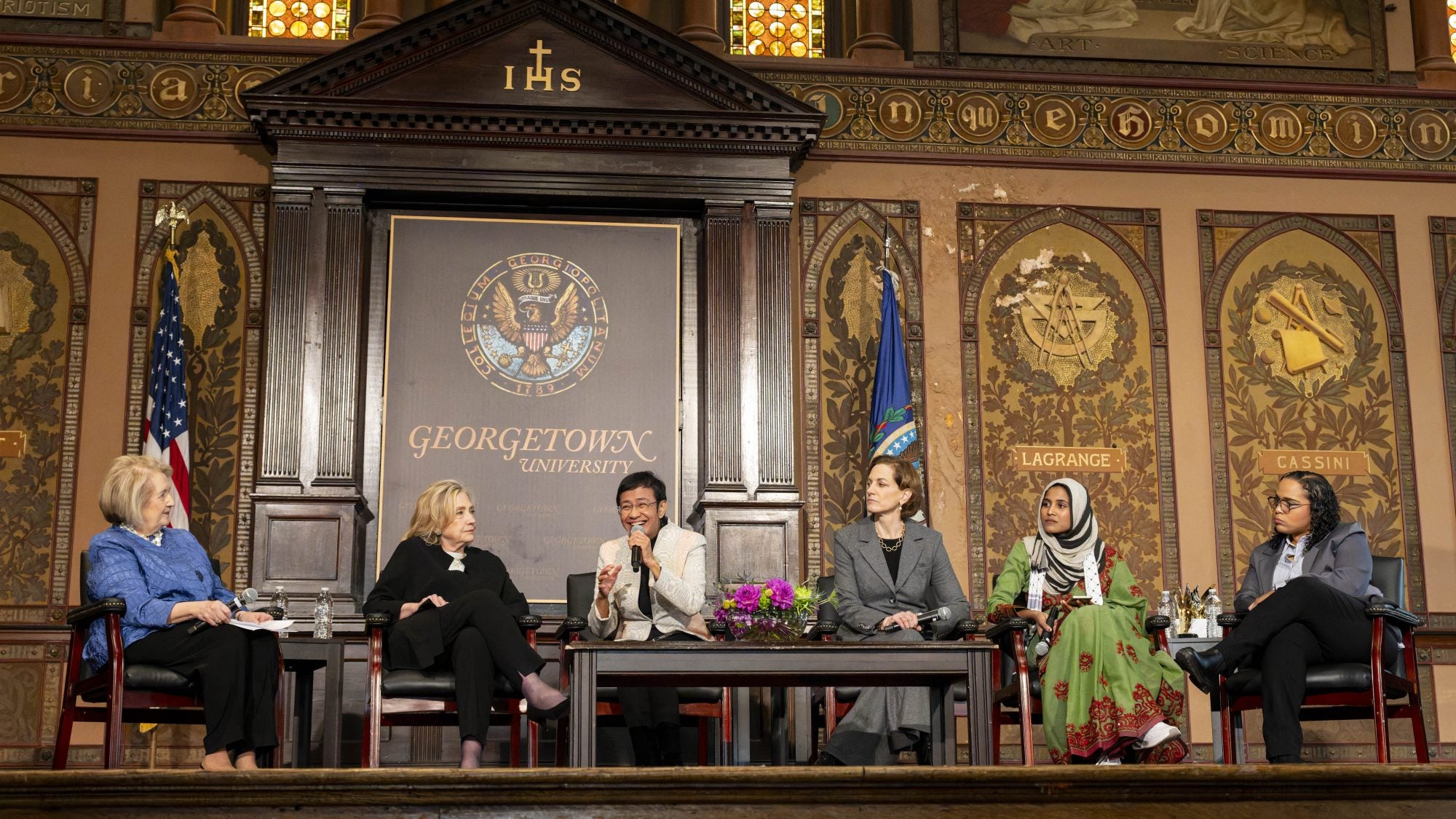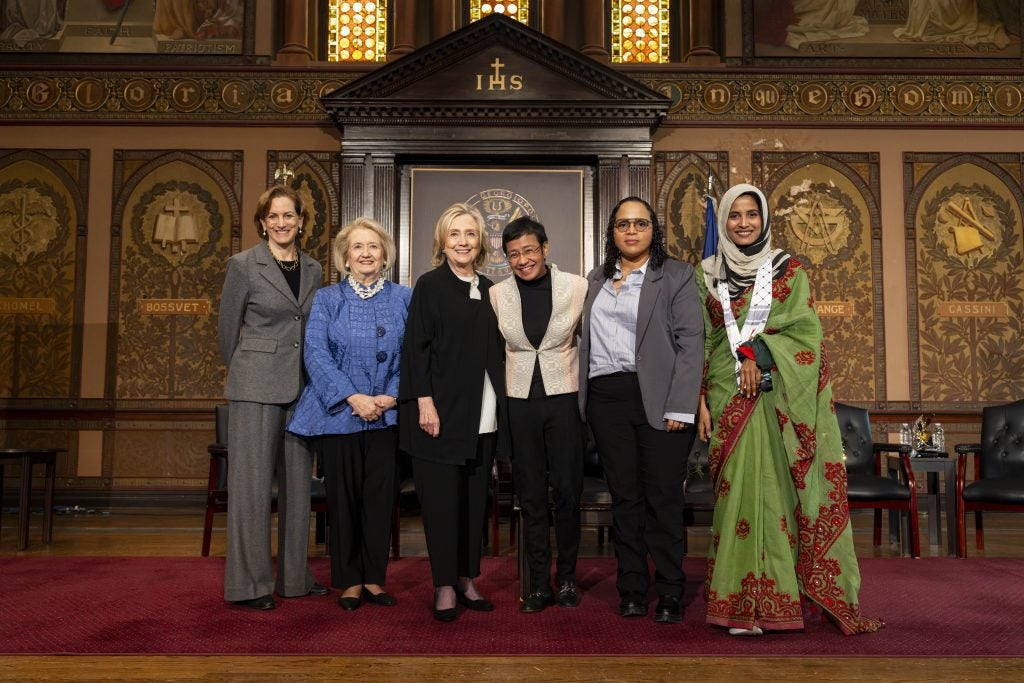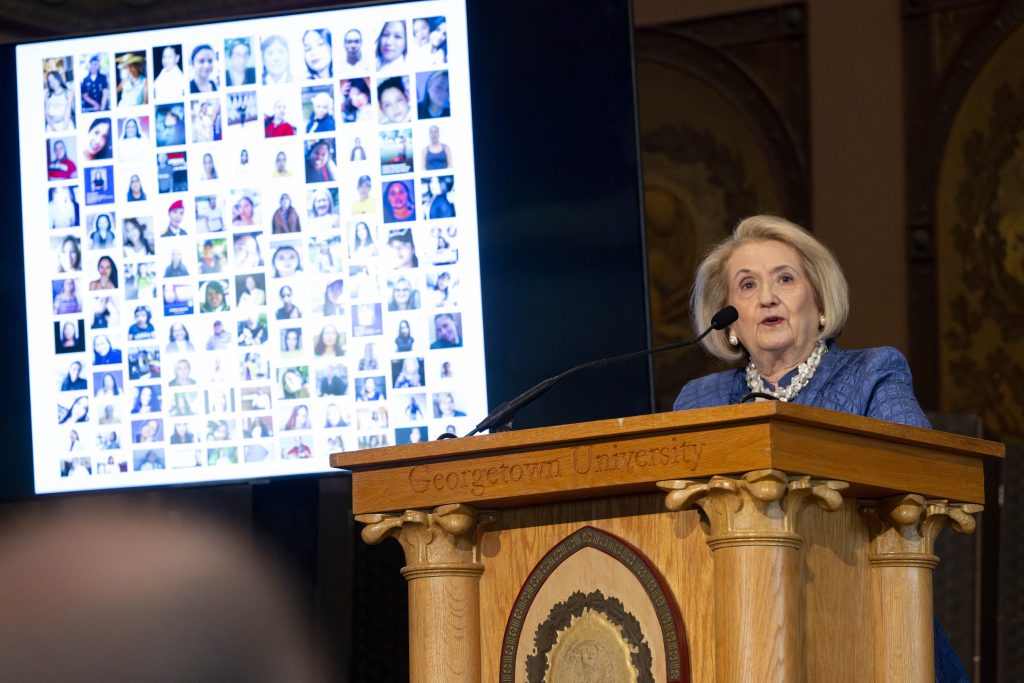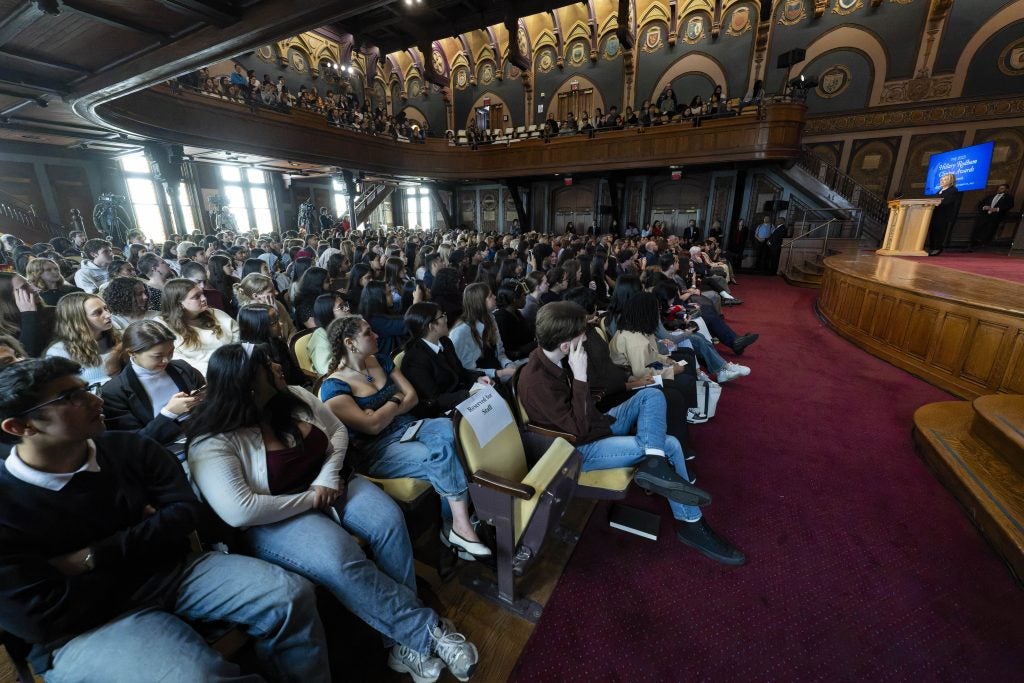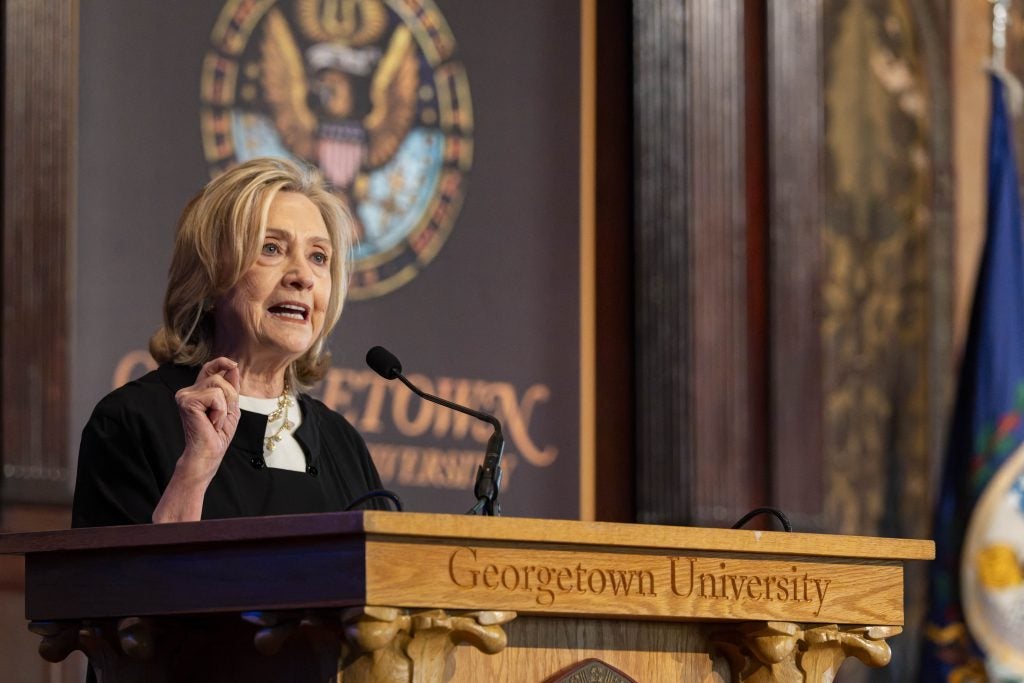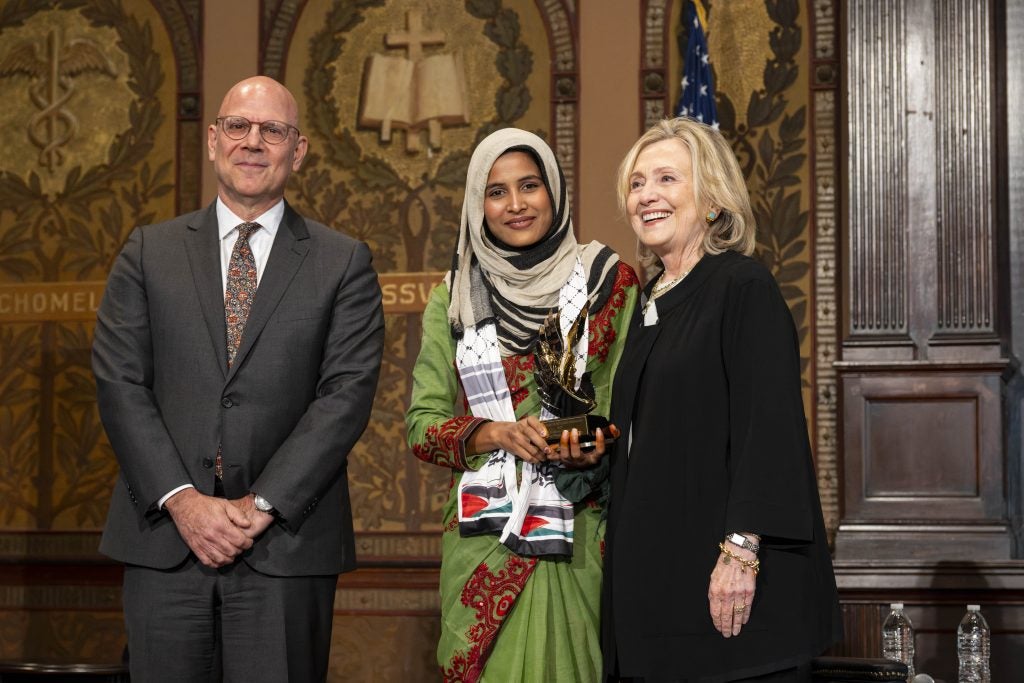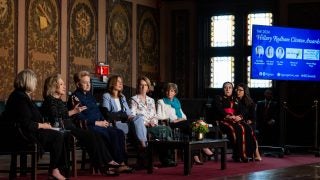Maria Ressa
Nobel Laureate & CEO of Rappler
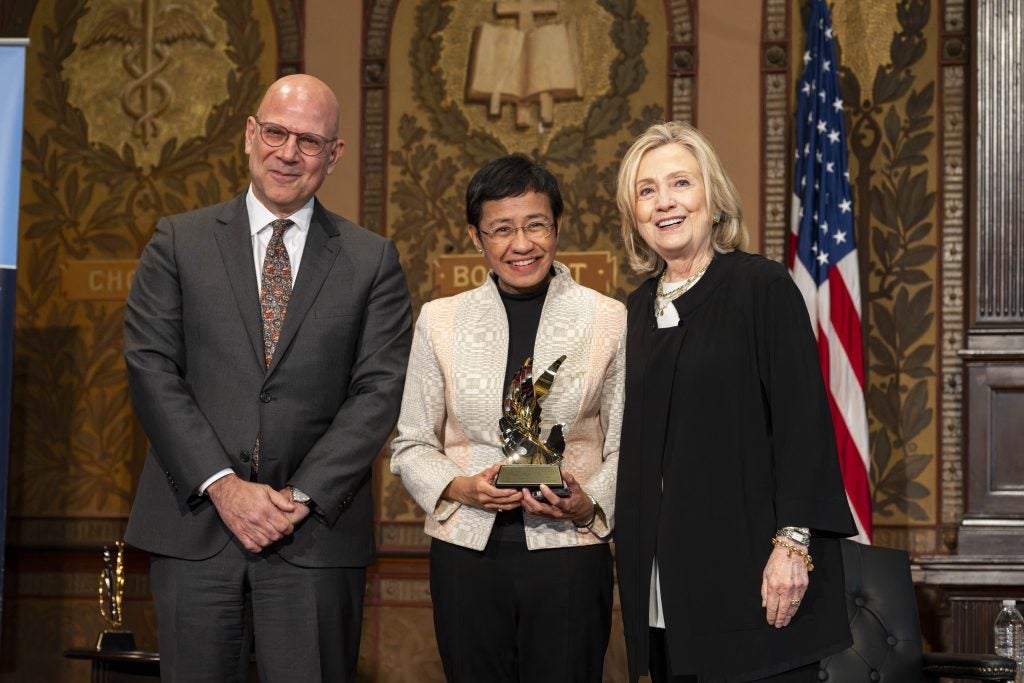
Maria Ressa is an investigative journalist and CEO and founder of Rappler, a Manila-based digital news company known for exposing government corruption and human rights violations. In 2021, she was awarded the Nobel Peace Prize for her efforts to protect basic human rights like freedom of expression.
“If you’re standing still, you’re not doing enough; if you’re thinking about it, you’re not doing enough,” Ressa said. “This is it, this is the moment … it’s historic, and what will happen next will be up to us. That’s what keeps me going.”
Through her work, Ressa has also uncovered how social media has been used to spread disinformation and target women and girls online. She was recognized for her work as a champion for women’s progress, peace and security globally.
Comedian and writer Jon Stewart offered video remarks congratulating Ressa before she accepted her award.
“Whenever I’m feeling that the world is slowly closing in and becoming darker, she is someone that I always look to as a source of light,” Stewart said.
Anne Applebaum
Pulitzer Prize Winner & Writer for The Atlantic
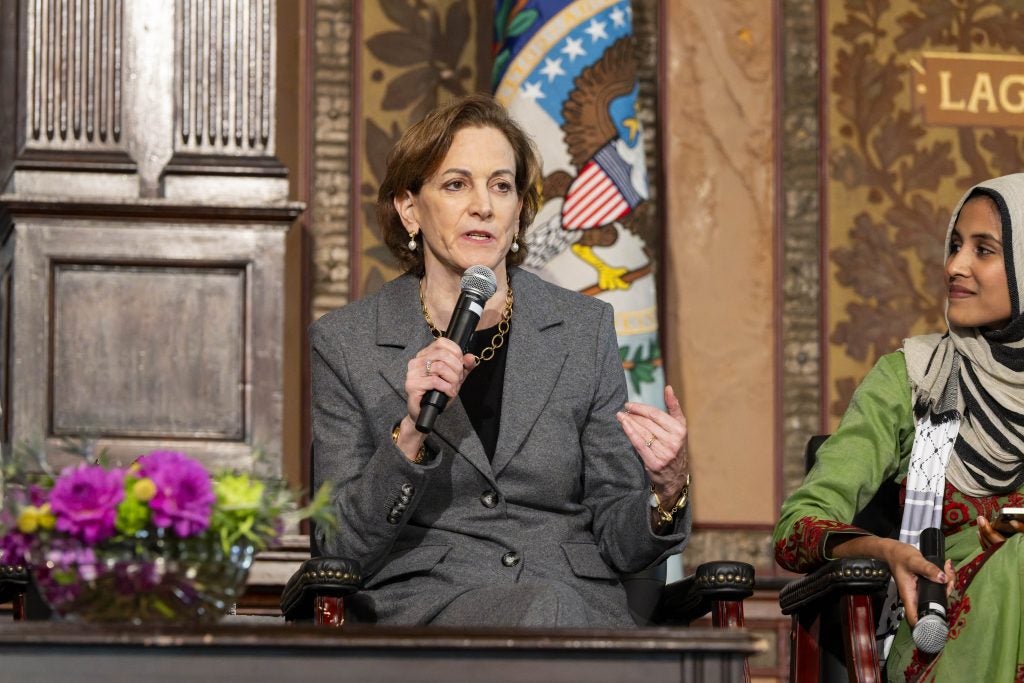
Anne Applebaum is a Pulitzer Prize-winning journalist and historian who is a staff writer for The Atlantic and a senior fellow at the Johns Hopkins School of Advanced International Studies and the SNF Agora Institute. Her reporting spans from disinformation campaigns to Russia’s full-scale invasion of Ukraine, highlighting the global threat to democracy and the rule of law.
“There’s a lot of pessimism right now in the United States, but I genuinely feel that pessimism is irresponsible,” Applebaum said. “Pessimism is what the autocrats, the dictators, the oligarchs want you to feel … this is the opposite of what you need to do. You need to be optimistic, look forward, think about the future, and, above all, you need to be connected.”
Applebaum was recognized as an influential voice for justice and human rights who urges global unity in defending democracy.
Student Protest Leaders of Bangladesh
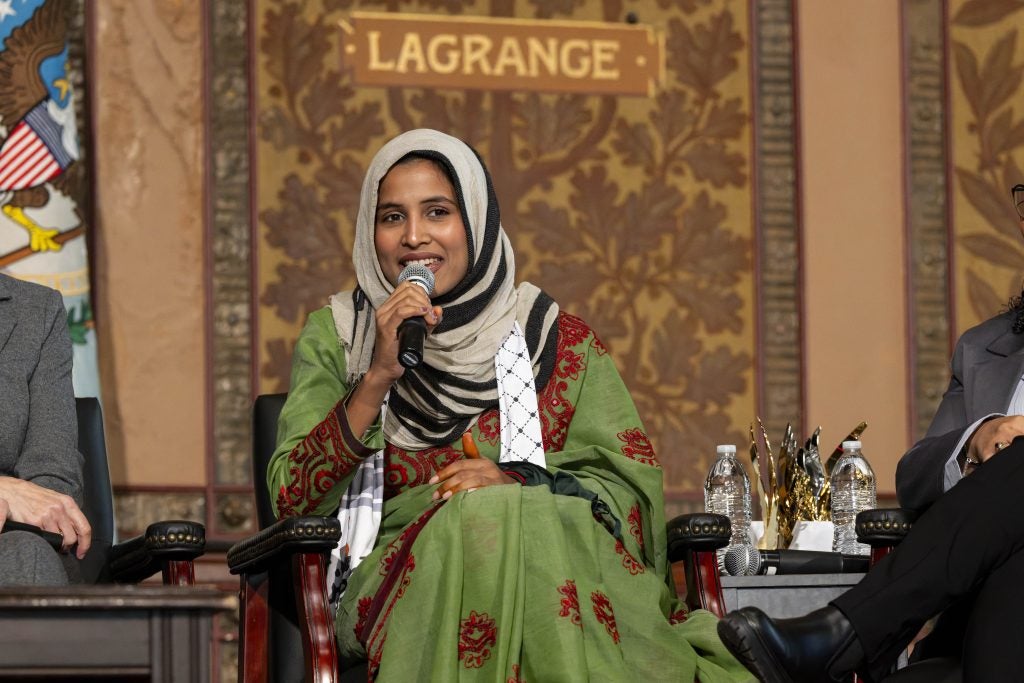
GIWPS awarded students who led the democratic movement in Bangladesh against corruption and authoritarianism.
In July 2024, Bangladeshi students mobilized to demand a new, democratic government in response to Prime Minister Sheikh Hasina’s regime. They faced repression, including communications blackouts and extreme violence by security forces against protestors, according to the Office of the United Nations High Commissioner for Human Rights. Despite this, their protests continued and succeeded when Hasina resigned in August 2024.
“The fact that unarmed students and ordinary people stood up to 15 years of fascism last year … and won without firing a single shot,” said Dr. Nabila Idris in video remarks during the ceremony. “It is a testament to the bravery of the people of my land.”
The student protestors nominated Professor Muhammad Yunus to lead the caretaker government as chief adviser, a role similar to prime minister.
“What these young women have achieved is unprecedented,” Yunus wrote in a letter. “Their actions serve as a powerful reminder that the pursuit of justice cannot be fulfilled without the full and equal participation of women. These brave women shattered long-standing societal norms and redefined the role of women in public and political life.”
The award was accepted by Tanjina Tammim Hapsa, central coordinator of the uprising in July 2024.
“I am the representative of the women who chose to speak when silence was the safe thing,” Hapsa said. “They chose to show their courage when fear rose in our country.”
Venezuelan Political Prisoners
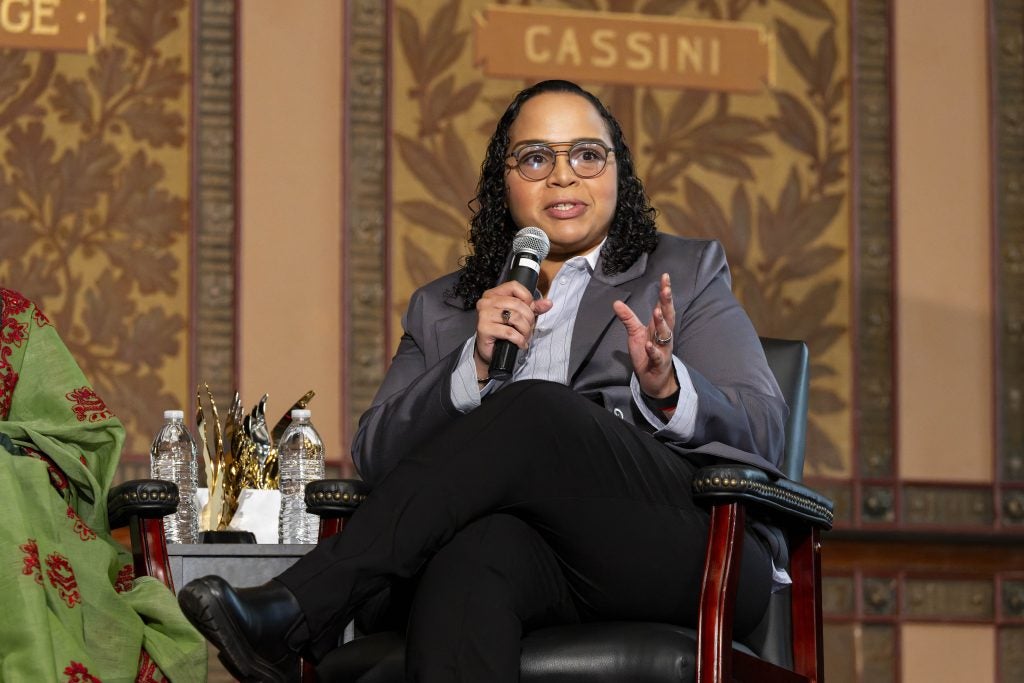
Georgetown also awarded women political prisoners in Venezuela for their human rights advocacy. In Venezuela, women activists endure political repression and are routinely charged with terrorism, conspiracy and treason.
The award was accepted by former political prisoners Sairam Rivas and Virginia González, along with Geraldine Afiuni and Daneli Hernández, whose family members have been imprisoned.
Hernández said she accepted the award in honor of her mother, political prisoner Nélida Sánchez, and the countless women still imprisoned.
“We should live in freedom, we should have democracy, my mom shouldn’t be in jail and all political prisoners shouldn’t be in jail,” Hernández said. “I will continue working until this corrupt and autocratic regime in Venezuela is out.”
Venezuelan politician and activist María Corina Machado, who received the Nobel Peace Prize last week, wrote a letter praising the bravery of these women.
“Venezuelan women have been a fundamental pillar of our struggle,” wrote Machado. “Their dedication, courage, and testimony, even in the face of persecution, are an example that inspires us to carry on.”
